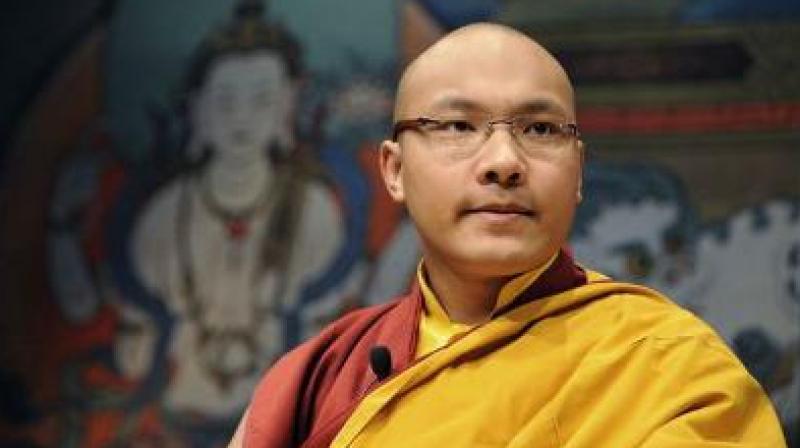China hopes India would not complicate border after Karmapa's Arunachal visit

Beijing: Reacting mildly to India allowing Tibetan spiritual leader Karmapa to visit Arunachal Pradesh, China on Monday expressed hope that New Delhi would refrain from taking any action that might complicate the boundary dispute.
The 17th Gyalwang Karmapa Ogyen Trinley Dorje last week visited Arunachal Pradesh, which China claims as a part of southern Tibet.
Replying to a question on his visit, Chinese Foreign Ministry spokesman Lu Kang said, "China's position on the East section of the China-India border is clear and consistent. We hope India can abide by relevant consensus and refrain from any action that might complicate the boundary question."
"To ensure the peace and stability of the border areas and sound and stable development of the bilateral relationship serves the common interest of the two sides," he said.
Asked whether China has lodged any protest with India in this regard, he said China and India are in "constant communication on this".
"The Indian side is clear about solemn position when it comes to boundary question," he said.
The 17th Karmapa during his first visit to Arunachal Pradesh toured West Kameng district and preached to the Tibetans at Gyuto Monastery at Tenzingang before leaving for Kalaktang.
Union Minister of State for Home Affairs Kiren Rijiju had thanked Prime Minister Narendra Modi for doing away with the restrictions imposed in the previous eras and for facilitating the Karmapas visit to any part of the country and elsewhere.
China's reaction to Karmapas visit appeared far more guarded and mild compared to its response on India granting permission in October this year to the Dalai Lama to visit Arunachal Pradesh.
There is also no direct criticism of Karmapa unlike the Dalai Lama, whom Beijing calls a separatist and a politician in the garb of religious leader.
China routinely objects to visits by the Dalai Lama, Indian leaders as well as foreign dignitaries to Arunachal Pradesh.
On October 24, China took exception to the visit of Richard Verma, the US envoy in India, to Arunachal Pradesh.
The border dispute between India and China covers the 3,488-km long Line of Actual Control (LAC). India asserts that the dispute covered Aksai Chin area which was occupied by China during the 1962 war.

